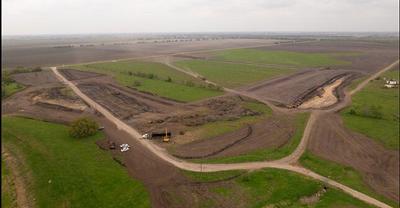- Sections :
- Crime & Public Safety
- Restaurants & Food
- Sports
- More
Google Commemoration Day brings change into focus
SPRING, Texas - Motor cars, the internal combustion engine, the cotton gin and … Google. On Sept. 7, 2014, technology lovers of the world united to celebrate Google Commemoration Day, marking the day when Google became a company more thab 15 years ago. While Google is not in the history books yet, it is clear that it is uniquely qualified to stake a claim for changing the way we live, work and play.
Google as a corporation includes dozens of cutting-edge technologies, far beyond the original search engine that grew so successful that it has spawned its own verb. Google’s 40,000 employees are at work creating a wide variety of products that change the way we do things: from interactive maps that get us where we want to go, shared documents that allow us to collaborate with others, prototypical drones working to further facilitate quick deliveries, Glass wearable technology that gives us information right before our eyes and YouTube that gives us the video clips we want instantaneously. Googles ideas are at once simple in aim and extremely complex in execution. Even the least technology-savvy among us is affected.
“However you divide your life, the most powerful driver is the suite of information technologies,” says Andy Hines, program coordinator for the University of Houston’s Foresight Program. Hines brought together students and faculty at the University of Houston to study student needs, student life and predict changes that will occur in the future. They divided life into sectors, for example how they learn, work, play, connect and participate in civic life. Through their research, it became clear that technology was dramatically changing all of sectors of life.
“Artificial intelligence is driving change everywhere. We tried to look at many different future scenarios. Barring the collapse of civilization, it was hard to see how information technologies were not affecting society. It’s the single biggest change coming in the future and that balance is striking to watch.”
Google has a cute, catchy image with its silly name, rainbow logo, and simple, yet evocative doodles. Behind a streamlined facade, however, Google offers a complex web of killer apps that allow us access information as never before—shopping, finance, maps, scholarly work, blogs and even the earth. It offers companies incredibly detailed ways to reach customers over the Internet, and gives Internet users the information they want in increasingly precise fashion.
“It’s one of those things that when you don’t have it, you notice and really miss it,” says Paul Louden of Spring, Texas who is one of the beta testers for Google Glass. Louden is a co-host of the Understanding Autism radio show and an advocate for autism awareness. “A lot of people on the autism spectrum enjoy technology—it’s consistent and predictable. Google Glass is able to give me access to information hands free. If a road is closed, I’m able to get directions. If I get a text message, I can see who it’s from and whether it’s important, instantly. This gives me a confidence in day-to-day life and helps me deal with the anxiety I have pretty much every time I go out. It improves my quality of life, and when you have autism, that’s a great thing.”
Google pairs technology with extreme futuristic thinking with dramatic results. It has invested in drone, smart power-grid, robots and driverless auto technology. As we celebrate Google’s achievements to date, it is hardly possible to estimate what it may do in the coming decade.
“We see that technology is blurring all the corners of our lives together. Am I working, or am I having fun? Am I doing my civic duty?” says Hines. “We see old ladies walking down the street using the GPS on their smartphones. That would’ve been shocking 15 years ago. For today, we only know that everything will most certainly evolve.”
















